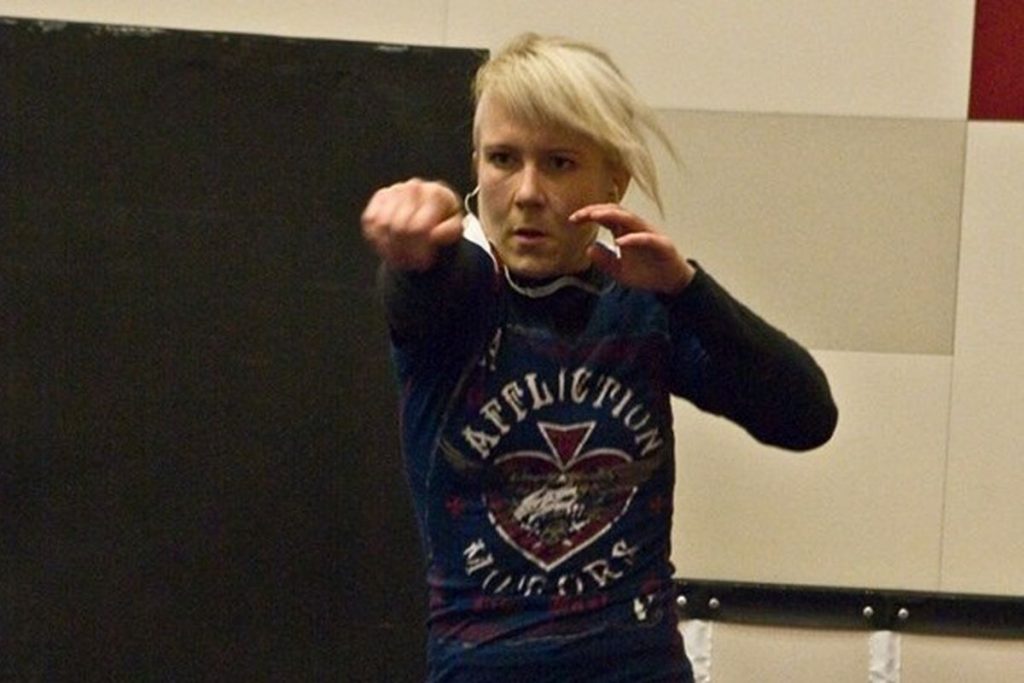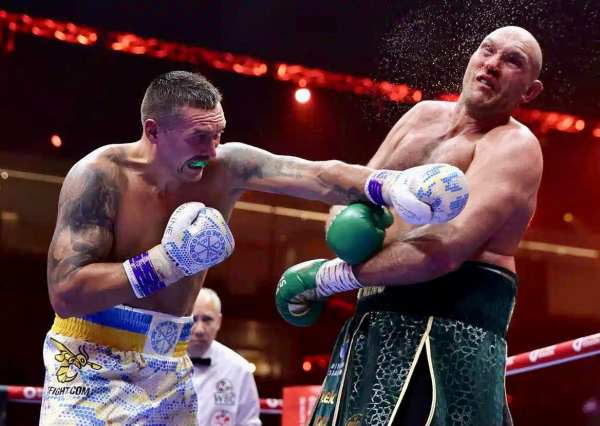
For Tina Lahdemaki, at least as far as her UFC journey was concerned, the beginning turned out to be the end.
The date was July 16, 2014, and Lahdemaki became part of history, battling Claudia Gadelha in the first-ever strawweight bout in the UFC. She would lose a unanimous decision, but going three rounds with the highly respected Gadelha only seemed to indicate that the then-26-year-old Lahdemaki had a bright future ahead of her inside the Octagon.
Issues with a past shoulder injury arose soon after, meaning Lahdemaki’s next booking would have to wait as she underwent surgery. No one could have guessed that it would be the start of a brutal cycle that saw her have to go under the knife twice more, each time enduring a lengthy period of recovery and rehabilitation.
As it turns out, she would not fight again.
Now 30, the Finnish fighter’s management recently released a statement to provide an update on Lahdemaki’s status. It confirmed that she was retiring, primarily due to the injuries that forced her to the sidelines for the past four years.
Lahdemaki spoke to MMA Fighting about what other factors led to this decision and what lies ahead for her.
/cdn.vox-cdn.com/uploads/chorus_asset/file/11695785/10513504_280095762177091_784459101579353874_n.jpg)
“I had thought about it for the past six months or so, but it was a few months ago that it really hit me that this might be the best way to go,” Lahdemaki said. “I talked about it with my husband and with the coach and after that I knew it was final, but I just needed the time, the few months to get in peace with the decision so I can tell everyone. So that I really, really believe it myself also.”
Lahdemaki’s frustration over her injuries wasn’t the only reason why she was becoming more comfortable with the idea of retirement. After all, battling her shoulder problems in the hope of making a comeback had become unpleasantly routine for her at this point.
But 10 months ago, Lahdemaki and her husband Jarkko Hanninen (whose surname she took, though she will be referred to as Lahdemaki for the purposes of this feature) welcomed their first child, a son, to the world and that understandably created a shift in priorities. Since discovering boxing at age 15, Lahdemaki has dedicated the majority of her adult life to training and honing her craft, focusing on sleeping and eating right.
As a mom, it’s someone else’s diet and sleep schedule that she has to worry about.
“Now I have someone who’s always — like, Joe Rogan said in one of his standups, that you always have someone who always gets the best banana and I get the s**ty banana,” said Lahdemaki, with a laugh. “So I love him, he’s a great guy, he’s funny and happy and it’s the best thing I have ever done. Not the greatest achievement, but the best thing that has ever happened.”
In a sense, it’s not just a joy but a relief for Lahdemaki to have motherhood to help her to move on from a fighting career that became increasingly stressful due to the constant setbacks, the questions of when (or if) she would fight again, and the sheer aggravation of dealing with an injury that required multiple surgeries. According to Lahdemaki, by 2017 her shoulder had dislocated so many times that it was actually missing bone and her most recent surgery involved removing bone from around her neck and using it to reinforce her shoulder.
The last couple of years have been so discouraging for Lahdemaki that she gave up on following the sport, preferring to avoid the speculation that would build up in her head as far as how she would contend with the fighters in the growing UFC strawweight division.
“The first two years I really kept track and I watched the fights and I thought that ‘That’s someone I could beat. I know I could win that fight. I know I will fight better,’” said Lahdemaki. “But after that, I started to feel like, when the surgeries piled up and the injuries piled up, for a while I stopped watching fights because I just felt jealous. I wished that could be me there.
“I know I can fight, I know I’m a great fighter. So then I had that moment where I couldn’t watch MMA and watch others fight. I trained at the time but I couldn’t watch other people do it because it felt awful, I felt sad, so at the time it felt better not to watch how other fighters do.”
/cdn.vox-cdn.com/uploads/chorus_asset/file/11695787/10397153_280598088793525_2966316324024379061_o.jpg)
Though she’s confident she would have been a title contender at 115 pounds, Lahdemaki downplays her role in kick-starting the division (“that was something that was going to happen anyway at some point,” she said). She appreciates the support she’s received from both the UFC and fans in her absence, though she admits that after a while it became difficult for her to tell everyone that there was no clear timetable for a return.
Lahdemaki doesn’t have to worry about that for the time being. She has a son to raise, and plans to go back to school in August where she will make up for lost time before working her way towards university eligibility.
And should a day come where Lahdemaki’s shoulder is finally right, and she’s able to balance work and family and training, could we see her at last pick up where she left off?
“I would love to say no, but I know that I have that in the back of my mind,” said Lahdemaki. “For now, I have this huge weight off my shoulders when I have retired and I can just see how it goes and I know that I have that little spark in the back of my head that maybe in a few years I have the time to get myself better, get the shoulder better, and maybe I can fight again. But I don’t know, maybe it will take several years before that even goes away.
“And maybe it will happen, maybe I will fight again. It’s not a definite no, so I will fight if I get the chance, I will fight again.”





More News
Quiñonero fights Verdadero in Resbak 2
Resbak 2 at Malungon, Sarangani Province on July 12
Garde stops Baliente in 1st round in “Resbak”